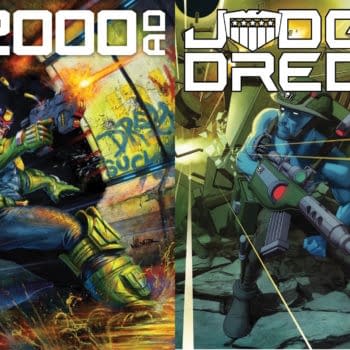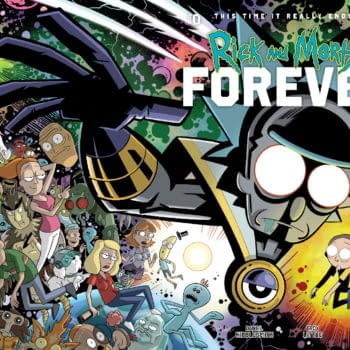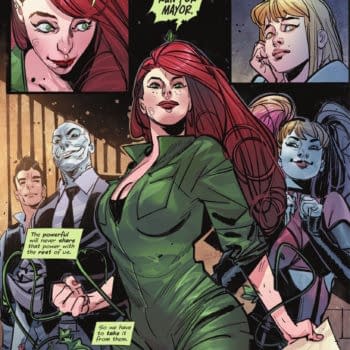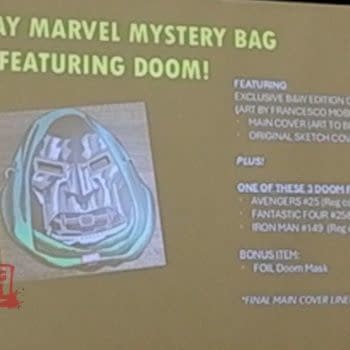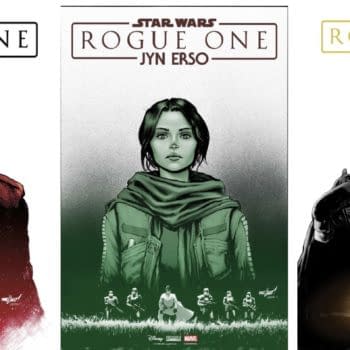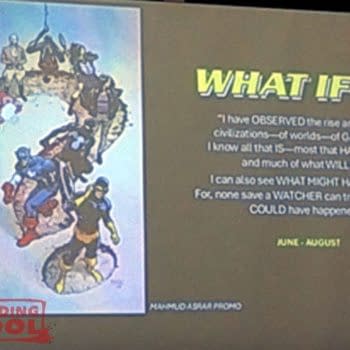Posted in: Comics, Recent Updates | Tagged: Box Brown, C. Spike Trotman, kickstarter, Marnie Galloway, Small Press Expo 2013, spx, T. Edward Bak
Glorious SPX: Eye-Opening Advice For Funding Comics from Trotman, Bak, Brown, Galloway
Our Washington DC Correspondent David Dissanayake writes;
It used to be that if you wanted to self-publish your comic there were only two options available: Either you could go to a copy shop with a credit card and pay them to print it for you, or you could work in a place with a Xerox machine, use it, and then steal the copies. Thankfully, there are now a number of ways to gather money to publish your book, the most famous and successful of which is obviously Kickstarter.
The Funding Comics Projects panel held on Sunday at SPX was a veritable gold mine of information for anyone who has ever had any interest in Kickstarting a comic project.
Moderated by Isaac Cates of the University of Vermont, the panel included C. Spike Trotman (of Templar, Poorcraft and Smut Peddler fame), T. Edward Bak (Island of Memory), Box Brown (Retrofit Comics), and Marnie Galloway ( In The Sounds and Seas).
Let's dive right in, shall we?
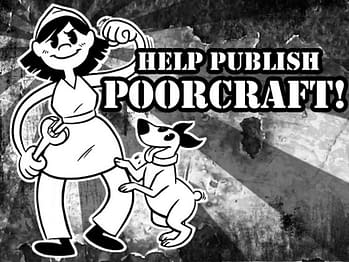
"It's a huge undertaking," said Brown. "For Secret Prison #7, it was delivered to my house on a pallet and it weighed 900 pounds and they just dropped it right in front of my house. Me and my wife just carried it one by one into the house. Then we packed them into envelopes and the stack of envelopes went from the floor to the ceiling, and we only had 400 backers."
Trotman had thousands of backers for her new, Kickstarted Smut Peddler collection. "It took two weeks of bribing friends with food to come over and stuff envelopes and line them up against the wall, and then every night my husband would come back from work, change, and we'd get out the dolly, because we had to buy a dolly, and fill it up with orders" to carry to the postal service. "We were lucky in that we knew what we were doing and we were prepared. We rented storage space, and we got envelopes we knew would fit. Everything was streamlined so it took us two weeks."
She related to first time Kickstarters, saying that most of the time it really isn't as easy as it was for her. "I really feel for kids who are just like 'let's put together an anthology, we're fresh out of college and have no idea what we're doing' and they get 500 backers and it takes them forever to fulfill. I understand why."
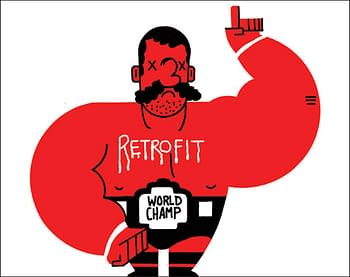
Trotman commented that she tends to "look at stuff in terms of profitability and profit margin. I see Kickstarters where reward levels are keychains, t-shirt, a dongle for your phone, a hoodie, and stuff like that, but all of that is just eating away at your profit margin and you're going to come out of it with a net zero if you have to make 52 t-shirts and 42 bags."
Brown emphasized keeping weight in mind when designing rewards. "My favorite rewards are on paper, because they weigh nothing. Weight is a huge deal when it comes to shipping." Panelists talked about using "thank you" credits at the back of the book, an in-story cameo, or even an appearance on the book's cover as good rewards because they don't actually cost money.
The conversation then turned to managing fees and expenses. "Always assume at least 10 percent going to Amazon and Kickstarter fees," said Trotman, though Brown said to "even go with 20 percent." Trotman advised that "when it's time to make your book, get your quote and then add 10 percent on top of that, just for Amazon and Kickstarter."
They also underlined the importance of keeping in mind that there will always be pledges that won't come through, "between 3 and 5 percent, but I always assume 5," said Trotman.
They also discussed the differences between crowdfunding sites, with an almost unanimous use of Kickstarter simply because it has considerably more traffic than some of the other crowd funding sites like Indiegogo. "There is an audience on Kickstarter," said Brown. Trotman added that on Kickstarter "the walkthrough traffic is insane. There are people just wandering around their favorite sections, and even though they have no idea who you are they back you because your project looks interesting. Every project I do has between 20 and 25 percent of the backers as people who are just wandering around the comics section, and no other site can offer that. That why I do it on Kickstarter, because that's where the money is."

She continued: "There is money from the city that the city allocates to fund your projects that is already dwindling and its already challenging to get money for the arts from anywhere, so I applied thinking that there was no way I would get funded by the city of Chicago. But, lo and behold, I got to make a really beautiful run with hand printed covers and offset pages that I wouldn't have gotten to do otherwise. Seriously, go look at your county wide, city wide grants because there are weird pockets of money out there, and if you don't apply it disappears. "
This was all really heady advice from the panelists. Don't forget about grants, folks, and if you or anyone you know is thinking about Kickstarting a comic, make sure to take these tips on board for a smoother and more successful campaign!
David Dissanayake is Washington DC correspondent for Bleeding Cool. Give him a shout @dwdissanayake on twitter.










